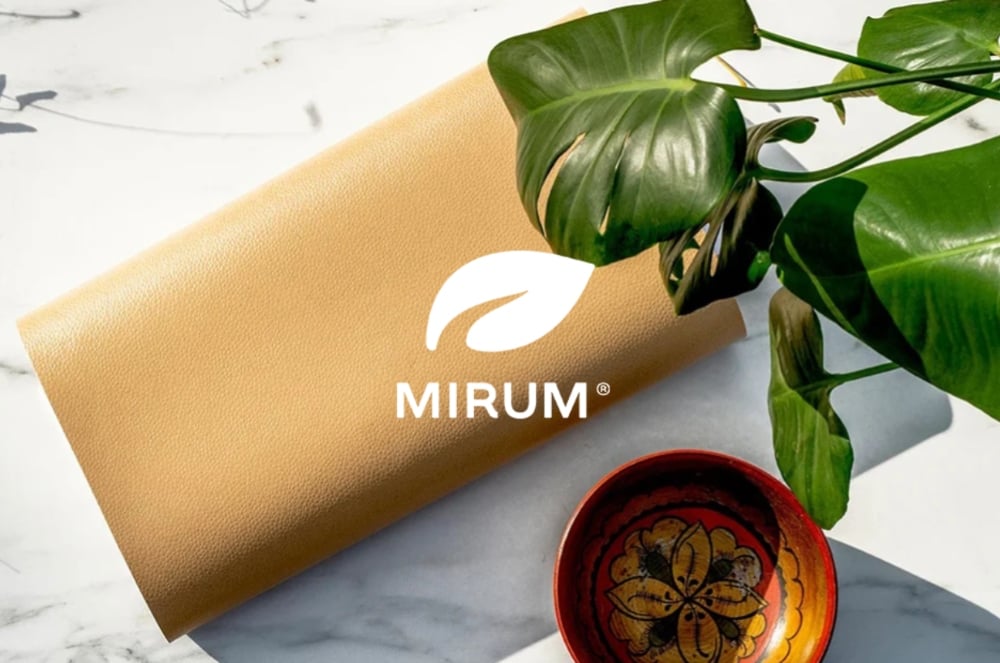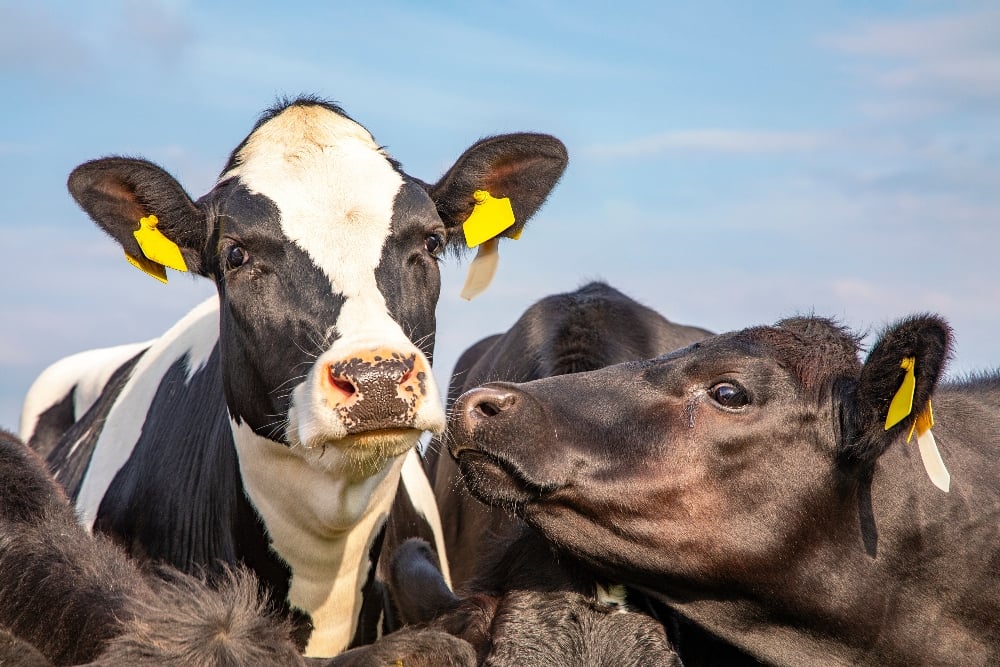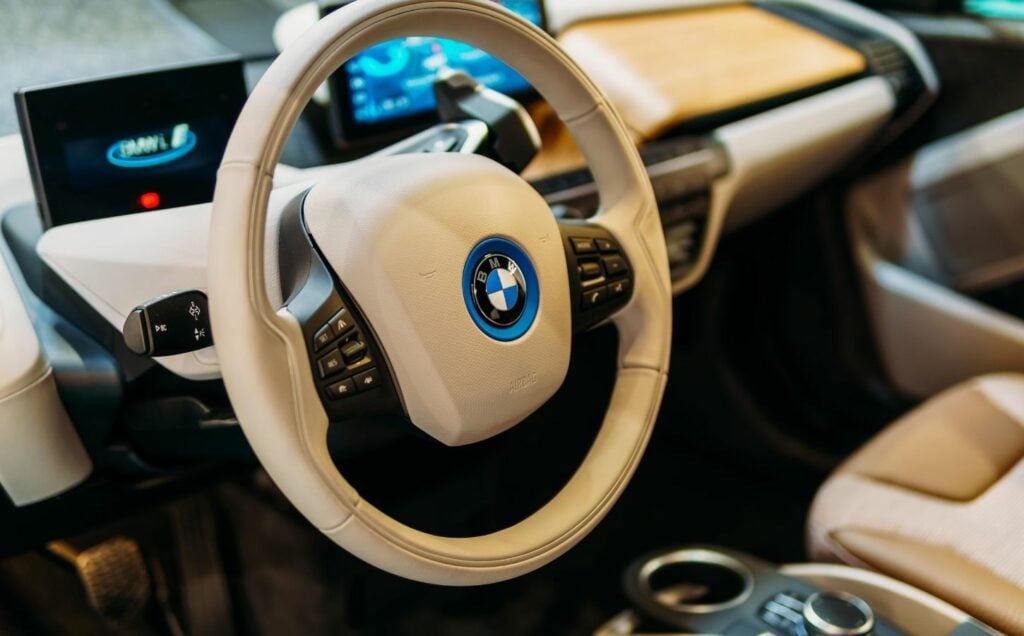The BMW Group has announced that it will launch its first-ever vehicles with fully vegan interiors in 2023.
Both BMW and MINI models are set to benefit from the switch. It comes about as a result of the development of suitable plant-based leather alternatives.
The company first experimented with animal-free upholstery in 2020. Cactus and fully bio-based (plastic-free, biodegradable) materials have both since been confirmed as passing rigorous seat testing procedures. This makes them suitable for full car fit-outs.
In addition to seats and armrests, traditionally more difficult trim pieces will now also be finished in animal-free materials. These will include steering wheels and gear stick gaiters, both of which need to be able to withstand excessive wear.
In a press statement, BMW said that the move will serve “the demand for vegan and leather-free interiors, which is set to increase further in the near future, especially in the US, China, and Europe.”
It has not been confirmed how many vehicles or which models will offer fully vegan interiors.
The road to BMW’s carbon neutrality
The BMW Group aims to be carbon neutral by 2050. To do this, the automotive manufacturer is attempting to reduce the emissions of every vehicle it produces. This applies over the entire life cycle of each product, starting with the build phase.
BMW claims that the new vegan materials will reduce CO2 emissions in the vehicle value chain by around 85 percent. This is due to a lack of methane being produced when making animal leather alternatives, which are being manufactured by start-ups in receipt of BMW’s support, chiefly MIRUM.

BMW has been investing in and experimenting with MIRUM for some time. A bio-based material made using industry by-products, including coconut husk fiber, it boasts around 45 percent fewer emissions than previously popular petrochemical-based leather alternatives. The group also uses Deserttex, a cactus fiber-polyurethane mix.
The company states that replacing animal materials will play a major part in reducing the carbon emissions of its vehicles. It also claims that its executives have been pushing the agenda for some time. Having finally found materials that can be used for steering wheels, vegan interior options officially got the green light.
“With a steering wheel made from a high-quality vegan surface material, we are fulfilling the wishes of our customers who do not want to make any compromises in terms of look, feel and functionality,” Uwe Köhler – Head of Development Body, Exterior Trim, Interior at the BMW Group – said in a press statement.
“The innovative material withstands wear and tear caused by abrasion, perspiration, and moisture and has all the desirable properties of leather.”
The problem with animal leather
Animal agriculture contributes around 14.5 percent of all greenhouse gas emissions. Much of this comes from cows, who are responsible for around a third of human-caused methane emissions. While leather is often thought of as a “byproduct” of meat and dairy, it is a huge industry in its own right. It was valued globally at $350.7 billion in 2020.

Aside from its direct connections to cattle rearing, which directly contributes to deforestation, excessive water use, and high emissions, leather processing adds extra layers of environmental issues.
“Leather is extraordinarily harmful to the planet. The chemicals that are used to tan the leather are not biodegradable; it’s very harmful for the water [and] it contaminates the local communities that are in contact with that,” Stella McCartney has previously commented. “It’s just a very destructive industry. Over 50 million animals are killed a year just for the leather and for the fashion industry.”
Are leather alternatives good for the environment?
Infinium Global Research predicts that the vegan leather sector will be worth $89.6 billion by 2025. This is largely being driven by consumers choosing to shop consciously and key brands, including Stella McCartney, choosing to turn away from animal products entirely.
Previous incarnations of vegan leather have drawn criticism from sustainability activists for their heavy reliance on plastic. Most commonly, petrochemical-based plastic polyvinyl chloride (PVC) was used, creating a non-biodegradable material. It was also shown to be hazardous to human health and a contributor to microplastic pollution.
More recent attempts to mimic animal leather have seen plastic-free or plastic-reduced variations being made using increasingly scientific methods. Fruit, mushroom, and cactus leather alternatives appear to be proving the most popular and durable right now.
Though BMW is not the first car manufacturer to look at vegan interiors, it is one of the latest. This means that it benefits from extended durability testing of potential new materials. It has also been able to maintain a focus on choosing the most sustainable options, without plastic as a key component.






